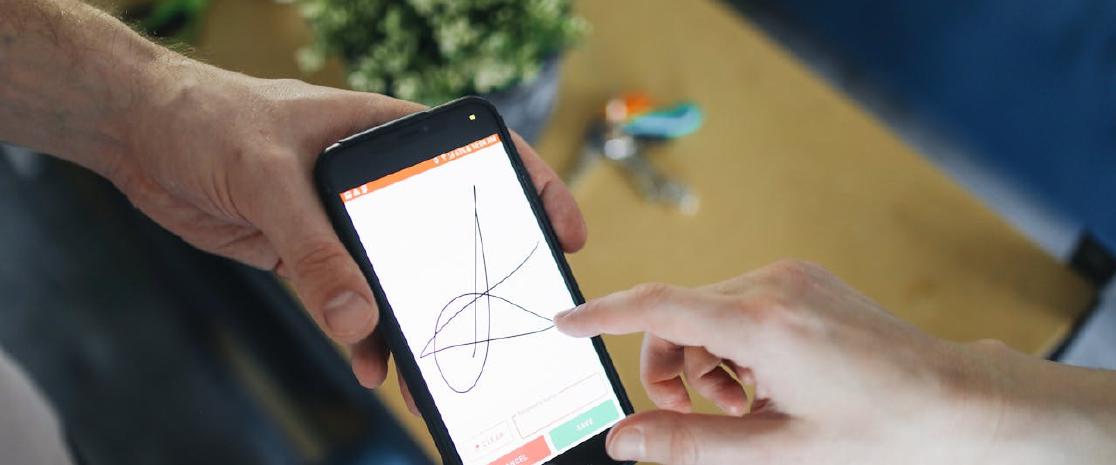With any type of notarization, be it traditional face-to-face or electronically online, identity verification has always been a part of the process. In modern times, technology has changed how we do things. With traditional notarization, it is easy for a notary to do identity verification. Now the process is done virtually, with an online ID check. You need to understand how it works and why it is so important.
Why a notary needs to do identity verification
Remote online notarization is very convenient, but it is also important to ensure that the signers are legitimate, too. A notary needs to have an online verification process that is thorough and robust. Verifying that the signer is actually the correct person maintains the integrity of the process and ensures the documents are legally valid.
- It mitigates risks for both parties so that there are no legal repercussions for anyone affected by the documents.
- It prevents fraudulent activities and impersonation, which means that there can be no malicious intent or harm caused by the documents.
- It reduces the risk of crimes being committed by using the documents.
- It is a legal requirement for the identity of a signer to be validated for all notarized documents (both traditional and online).
- It ensures that contracts are valid and makes documents legally binding, which is a protection for all signatories.
Methods for an online ID check
While some of these methods may be used, not all of them are used all the time. However, it is important to understand what types of methods could be used to ensure a complete and trustworthy ID verification process.
By implementing any or all of these identification verification methods, the remote notary adheres to best practices, creating a secure and reliable environment for conducting remote notarization.

Credential analysis
When the notary does identity verification using an ID, you will need to hold your ID up to the camera. You would need to confirm information like your name, date of birth, and current location, like the city or country you are meeting in.
For an online ID check, the identification that you would need to produce can be your government-issued ID, such as your driver’s license or passport. This may be verified against secured databases to ensure its validity.
Knowledge-based authentication
Knowledge-based authentication uses your own knowledge about yourself. You could be asked questions that are either public knowledge or private information, like your credit history, address, or social security number. The online ID check uses this knowledge to verify your identity.
Biometric validation
This is where the online notary will do identity verification using features and characteristics that are uniquely yours but that are compared against stored data in secure government databases or encrypted storage facilities. This type of verification could include facial recognition, fingerprints, iris, or voice patterns.
Security
It is important to note that the document must be signed at the time of the meeting while the online notary is present. Everything is done over a highly secure network, and the notary adds digital certificates to ensure tamper-proof transactions.
When an online ID check is conducted, the notary has to adhere to very strict security standards. They respect the fact that every signatory needs confidentiality and that data security is of the utmost importance. This is one of the reasons why every state has very specific laws about the regulations surrounding identity verification.
What the future may hold
There are constant changes and upgrades to systems and technology, and the future of ID checks will likely improve over time. This would help boost security methods and ensure a streamlined process. There is talk of advanced biometrics and artificial intelligence (AI) that can enable faster, highly accurate identity verification for a notary.
New technologies like these can improve the entire remote online notarization process. This would ensure that real estate deals, vessel sales, corporate contracts, and much more could be notarized faster, and an online ID check would always be perfectly accurate.
Final thoughts
Verified identities play a huge role in ensuring that documents are legitimately signed and are legally enforceable. It mitigates the risks of fraud and safeguards document integrity, protecting both signatories and the online notary. Whether it be a business contract or a property purchase, when a notary verifies identities, this becomes the cornerstone of any agreement and establishes a critical foundation for the enforceability of an agreement.
While traditional notarization offers face-to-face value, RON offers security and convenience with less expense. Contact Remote NotarEZ to have peace of mind with all your US document notarizations, no matter where in the world you are at the time. Your documents will be legally sound, signed, sealed, and secure with our ID verification systems.
